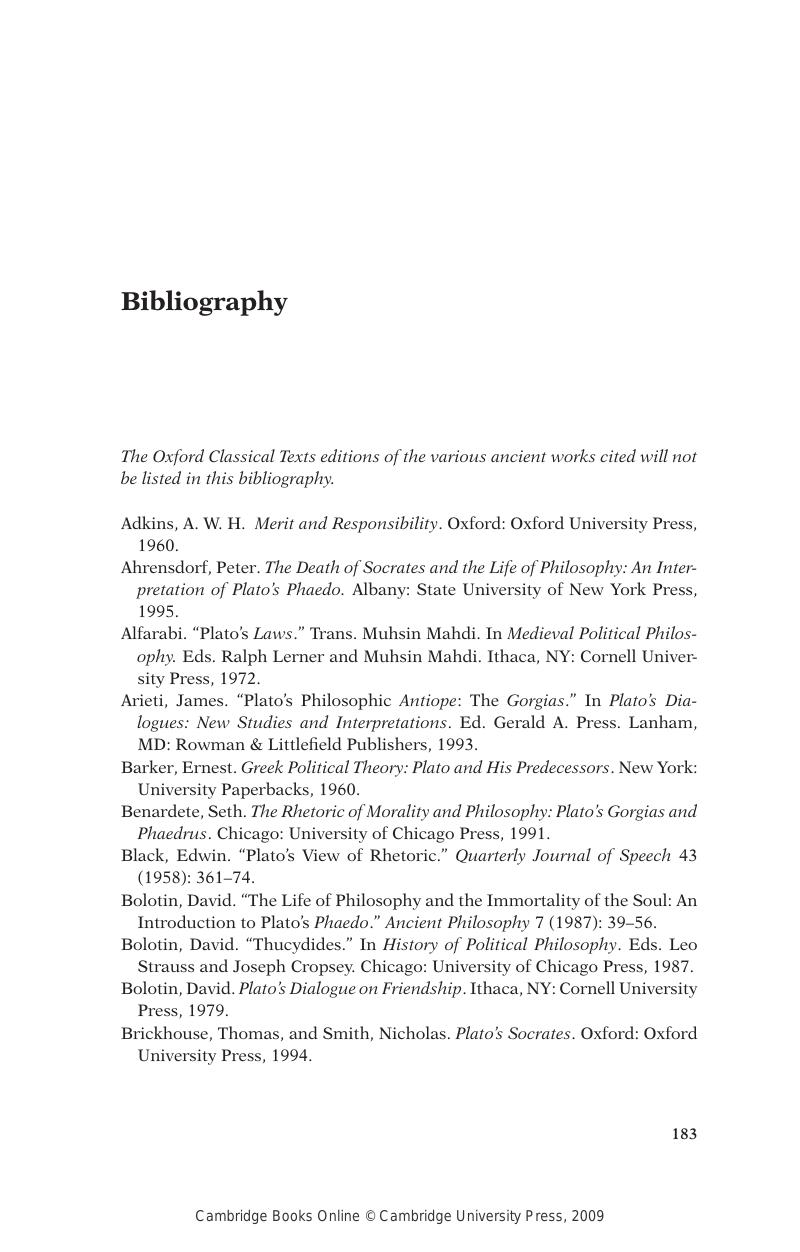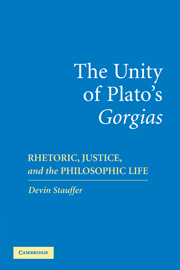Book contents
- Frontmatter
- Contents
- Acknowledgments
- Introduction
- 1 Examining the Master of Rhetoric
- 2 Polus and the Dispute about Justice
- 3 The Confrontation between Socrates and Callicles
- 4 Socrates' Situation and the Rehabilitation of Rhetoric
- Conclusion: A Final Reflection on Noble Rhetoric
- Bibliography
- Index
- References
Bibliography
Published online by Cambridge University Press: 30 July 2009
- Frontmatter
- Contents
- Acknowledgments
- Introduction
- 1 Examining the Master of Rhetoric
- 2 Polus and the Dispute about Justice
- 3 The Confrontation between Socrates and Callicles
- 4 Socrates' Situation and the Rehabilitation of Rhetoric
- Conclusion: A Final Reflection on Noble Rhetoric
- Bibliography
- Index
- References
Summary

- Type
- Chapter
- Information
- The Unity of Plato's 'Gorgias'Rhetoric, Justice, and the Philosophic Life, pp. 183 - 188Publisher: Cambridge University PressPrint publication year: 2006



